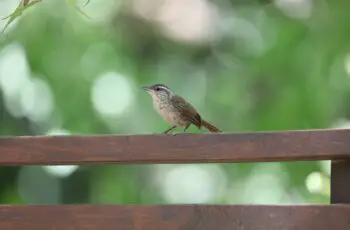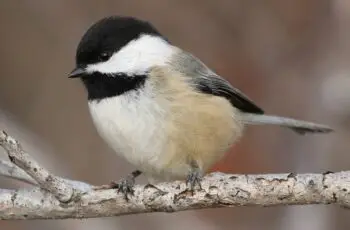While male raccoons play no role in raising their young, leaving that task to the females, do male raccoons eat their babies? If so, why and how? As well as, do female raccoon eat their babies or other babies? Here are all the answers.
Do Male Raccoons Eat Babies Their Own Babies or Other?
Male raccoons do not typically eat their own babies, however, sometimes male raccoons kill and eat the babies of other females in order to mate with the mother. However, it is important to note that this behavior is relatively rare and that most male raccoons do not turn to cannibalism.
Do Male Raccoons Eat Each Other?
Contrary to popular belief, raccoons do not typically eat each other. In fact, most raccoons are actually quite peaceful creatures that generally avoid conflict. However, if a raccoon is sick or injured, it may be killed and eaten by its healthy counterparts. Young raccoons may sometimes be the victims of cannibalism if they are unable to defend themselves or their mother isn’t around.
While these occurrences are relatively rare, they do illustrate that raccoons are not always entirely peaceful. In general, raccoons prefer to avoid confrontation and will only resort to aggression or violence when necessary but rarely eat each other.
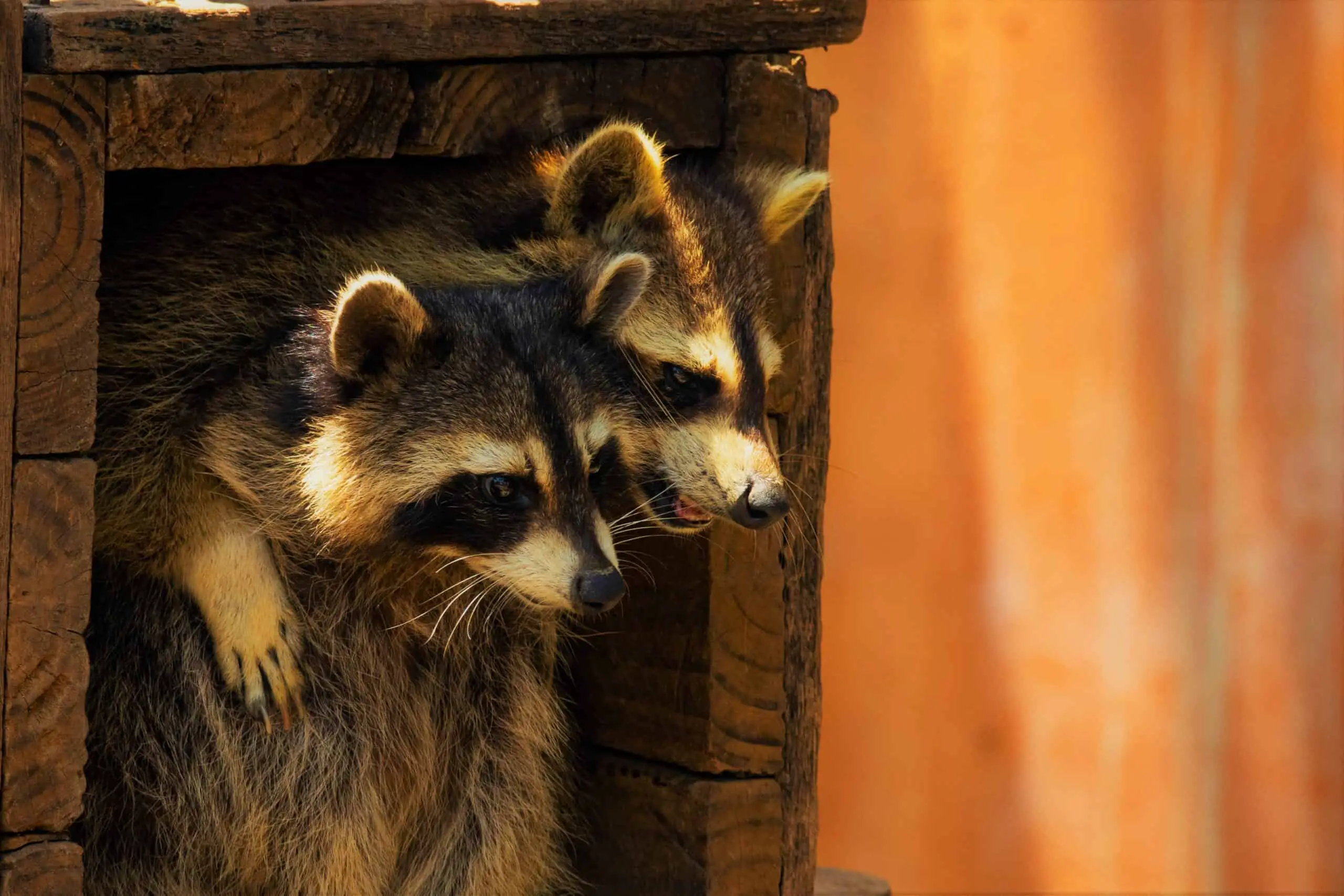
Raccoons
Do Raccoons Kill Each Other? Why Do Raccoons Kill Each Other?
Raccoons are often portrayed as aggressive, solitary animals that will kill each other if given the chance. In reality, raccoons are relatively shy creatures and peaceful with each other. In fact, they rarely fight with each other at all, let alone kill. In most cases, raccoons will simply avoid conflict by moving to another area.
Raccoons are actually very tolerant animals, and they generally live in harmony with one another. However, that doesn’t mean raccoons don’t fight at all. However, raccoons may fight with each other due to competition over food or territory, babies, or mates but they generally do not kill each other. But may only do in extreme cases like protecting their young or food.
In that case, the predator raccoons may escape the fight and move away. So, while raccoons may not be the most cuddly creatures, they certainly don’t go around killing each other.
How Can You Tell If A Raccoon Is Male Or Female?
If you’ve ever spotted a raccoon rummaging through your garbage can or raiding your bird feeder, you may have wondered how to tell if it’s a male or female. After all, raccoons can look quite similar at first glance. However, there are a few physical differences that can help you determine the sex of a raccoon.
For example, males tend to be larger than females, with heavier bodies and broader faces. In addition, male raccoons have an anus that is located below their tail, while in front of the anus, if the bulge is long and an incision is near to anus, it’s the female vagina.
So the next time you see a raccoon in your yard, take a closer look to see if you can determine its sex.
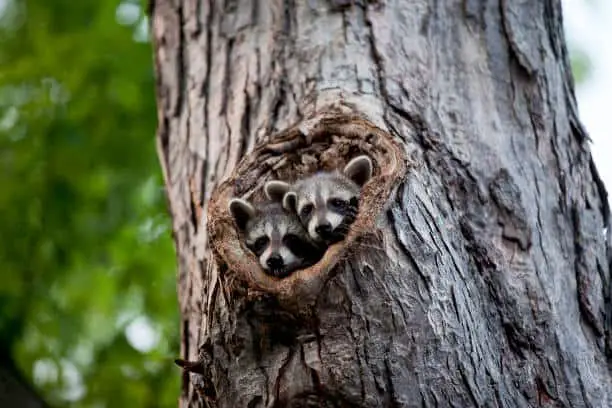
Do Male Raccoons Help Raise Babies?
Male raccoons are not known for their parenting skills. In fact, they abandon their mate and offspring soon after mating season.
Once mating season is over, they will typically leave the female to fend for herself. The female will then give birth to a litter of anywhere from two to seven offspring. For the first few weeks of their lives, the young raccoons will remain in the den with their mother. During this time, she will provide them with food and shelter. As they get older, however, they will begin to venture out on their own.
While the female raccoon takes on the responsibility of raising the young, the male typically moves on to find other mates. While it may seem like male raccoons are skipping their responsibilities, this is actually a survival strategy. Males leave the females because if males stayed with their mate and offspring, they would be at risk of being killed by other males who are looking to mate with them.
Will Female Raccoons Eat Their Own Babies or Others?
Female raccoons are very protective of their young and will do whatever it takes to keep them safe. They will take care of their own babies as well as other young animals, including those of other species. While there have been some reports of female raccoons killing and eating their young, this behavior is actually very rare.
This typically happens when the mother is stressed or starving, and she views her offspring as a source of food. But it’s actually quite rare and most of the time they are far more protective than being predators themselves. After all, it’s a mother.
In fact, studies have shown that female raccoons adopt orphans more than they are to kill a young. So while it is certainly possible for a female raccoon to eat her own baby, it is not something that happens often.
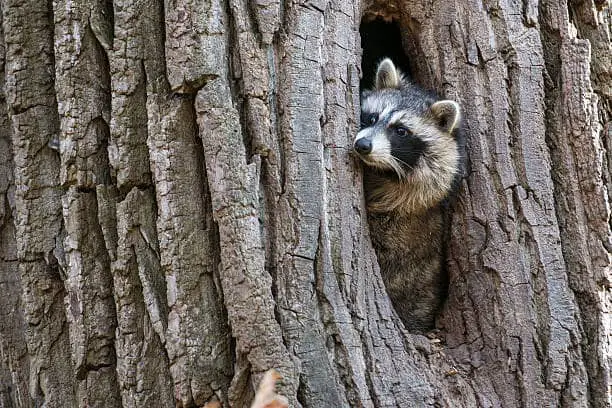
Do Raccoons Fight When Mating?
Every winter, male raccoons embark on a quest to find a mate. Along the way, they will encounter other males who are also seeking a mate.
However, this results in competition and battle with each other. Two male raccoons will often square off against each other, jabbing and swiping with their paws in an attempt to assert dominance. While these fights may look intense, they rarely result in serious injuries.
Instead, they typically serve as a way for males to size each other up and determine who is the stronger competitor. After a brief scuffle, the loser raccoon will usually go a separate way in search of a mate. And the dominant raccoon will continue to build relationships with the female.
So, while it is not uncommon for raccoons to fight during mating season, they usually don’t hold grudges and will quickly move on to the next potential mate.
How Long Do Baby Racoons Stay In The Nest?
Baby raccoons are typically born in the spring, with litters of anywhere from two to five kits. For the first few weeks of their lives, the kits stay close to their mother, huddled together in their nest for warmth and protection. They are completely dependent on her for food and care. Around eight weeks after they are born, the kits start to explore their surroundings and venture further from the nest.
At this point, they begin to eat solid food and learn how to climb and swim. The mother raccoon will continue to care for her young until they are around nine weeks old, at which point they are fully independent and ready to live on their own. Although they may still associate with their mother and siblings for a time, raccoons typically reach sexual maturity at around one year old and begin to lead solitary lives.
Do Raccoon Families Stay Together?
Though they are often considered to be solitary, raccoons are actually quite social.
Although adult raccoons tend to be solitary animals, they do live in small groups with other raccoons. The size of these groups varies depending on the availability of food and shelter but typically includes 3-5 individuals. Raccoon families typically stay together for one breeding season before the young adults disperse to find their own territories. Though they don’t stay together indefinitely, raccoon families do maintain close bonds.
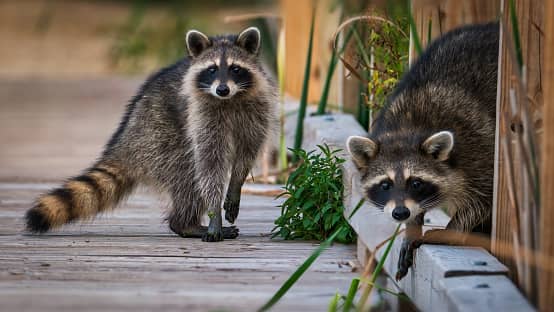
Do Male Raccoons Eat Their Babies
Are Male Or Female Raccoons More Aggressive?
When it comes to aggression, there is no difference between male and female raccoons. Studies have shown that both sexes can be equally aggressive when they feel threatened or are trying to protect their young.
However, there are some subtle differences in the way that male and female raccoons express their aggression. Male raccoons are more likely to use physical force, such as biting or striking with their claws. Female raccoons, on the other hand, are more likely to use vocalizations, such as growling or hissing, to scare off potential threats.
In the end, both males and females are equally aggressive when necessary.
Do a Mother Raccoon Abandon Her Babies?
A mother raccoon will never abandon her babies. Although it may seem like she does, there are many reasons why she cannot stay with them. If a mother raccoon is killed, her babies will not survive.
A mother raccoon will also leave her babies if they are ill or if they are in danger. Sometimes, a mother raccoon will move her babies to a new den if the old one is no longer safe. However, she will always come back, bring food and take care of them. In short, a mother raccoon will do everything she can to keep her babies safe, even if it means leaving them for a short time but not abandoning her.
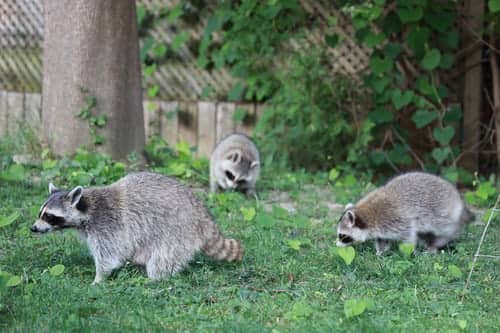
Do Male Raccoons Eat Their Babies
Why Do Baby Racoons Cry?
When most people think of raccoons, they probably picture a masked bandit rummaging through trash cans in search of a late-night snack. But there’s another side to these clever creatures that are much less familiar: their role as parents. Baby raccoons, or kites, are born blind and deaf and rely heavily on their mother for care and protection.
One of the ways that mothers communicate with their young is through vocalizations, with a distinctive high-pitched cry that sounds like “coo, chirp, and squeak.” This cry is used by kits to signal distress or hunger, and mothers will typically respond by coming to their side and providing comfort or food.
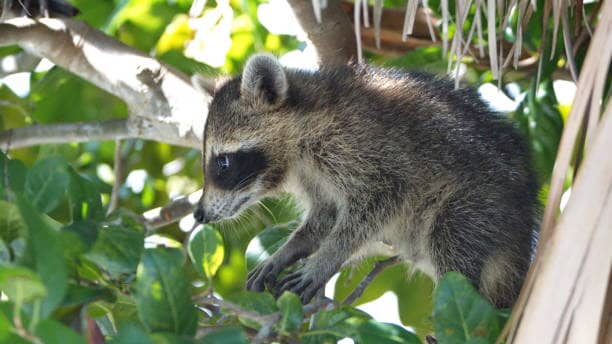
Do Male Raccoons Eat Their Babies
Do Raccoons Mate With Their Siblings
No, raccoons do not mate with their siblings. In fact, they typically avoid mating with close relatives whenever possible.
Studies have shown that inbreeding can lead to health problems and reduced fertility in offspring. Therefore, animals that are closely related are less likely to mate with one another in order to preserve the health of their species. While raccoons have no way of knowing if they are related to another individual, they still seem to avoid mating with those that look similar to them. Therefore, it is safe to say that raccoons do not mate with their siblings.
Do Raccoons Sleep In The Same Place Every Night?
Though they are not known for being especially tidy, raccoons are creatures of habit when it comes to sleep. Unlike many animals, who will sleep in the same locations every night, raccoons typically move frequently and change their dens to sleep at night. This is usually a hollow tree or some other type of natural cavity. And they come out at different times that rarely can people understand.
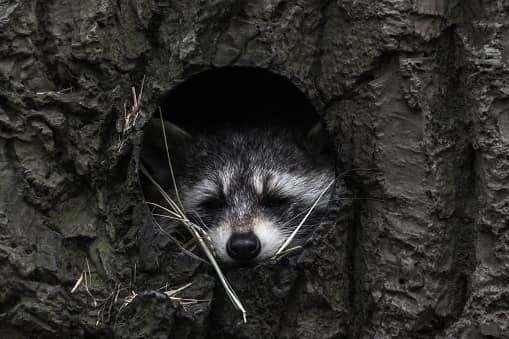
Do Male Raccoons Eat Their Babies
In urban areas, raccoons will sometimes make their homes in attics or chimneys. Even if a raccoon has found a comfortable spot to sleep, it will often change and move to a new spot every few nights or more.
Scientists believe that this behavior may help raccoons feel safe and secure, as well as avoid predators. Though they may not always be welcome guests, it is clear that raccoons are creatures of habit when it comes to finding a place to rest their heads. And that is all about does male raccoons eat their babies.

